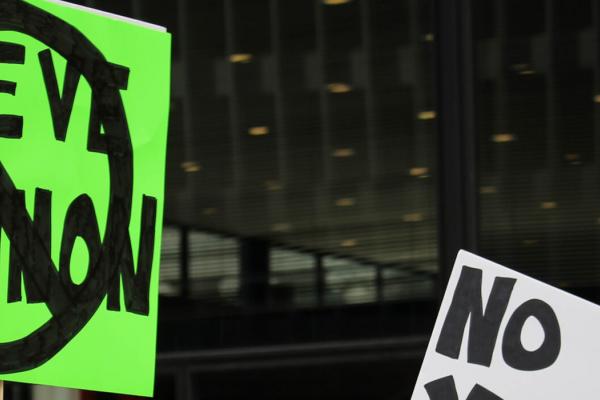AS HAS BEEN widely noted, when Donald Trump named Steve Bannon to head his presidential campaign, he brought into the U.S. political mainstream a set of ideas that have, for at least 75 years, been relegated to a disreputable fringe. Bannon has bounced through a number of incarnations in the past three decades—naval officer, investment banker, and film producer—before joining the ultraconservative “news” website Breitbart.com, first as a board member, then, after founder Andrew Breitbart’s sudden death in 2012, as executive chair. In that role, he took an outlet that was already at the far right edge of American politics down the rabbit hole and into the underground world of race-based nationalist theories and the politics of white resentment.
Breitbart founded his site in 2007, and it came to prominence in 2009 when the site promoted the deceptively edited hidden-camera videos that led to the demise of the ACORN community organizing network. A little later, Breitbart was the first outlet to post the again deceptively edited videos that led to the firing of African-American U.S. Department of Agriculture official Shirley Sherrod. In 2011, Breitbart broke the story of liberal Democratic representative Anthony Weiner’s penchant for obscene self-portraits.
Then Bannon took over in 2012, and the website began to exhibit a new interest in the far right nationalist movements rising in Europe. This, coupled with a pre-existing obsession with the imagined dangers of illegal immigration, helped make the site, as Bannon later boasted, “the platform for the alt-right.” The term “alt-right,” as we now all know, refers to a loose, mostly online network of white activists gathered around the general notion that the “white race” and its European-derived culture is slated for obliteration by the forces of globalism and multiculturalism.
Read the Full Article



